About the property:
A three-floor Victorian terrace located in Gosforth, Newcastle Upon Tyne, comprised of two-bedroom maisonettes and had an EPC rating ranging from D to E. The property was being reconverted to cater to medical professional’s with the maisonettes being turned into five studio and two-bedroom apartments.
Originally, the property was being heated with electric storage heaters, which were deemed to be inefficient, bulky and expensive to operate. The owner, Fenham Properties, wanted to use the refurbishment as an occasion to upgrade the heating system in line with new efficiency standards, with the goal of reaching an EPC rating of B.
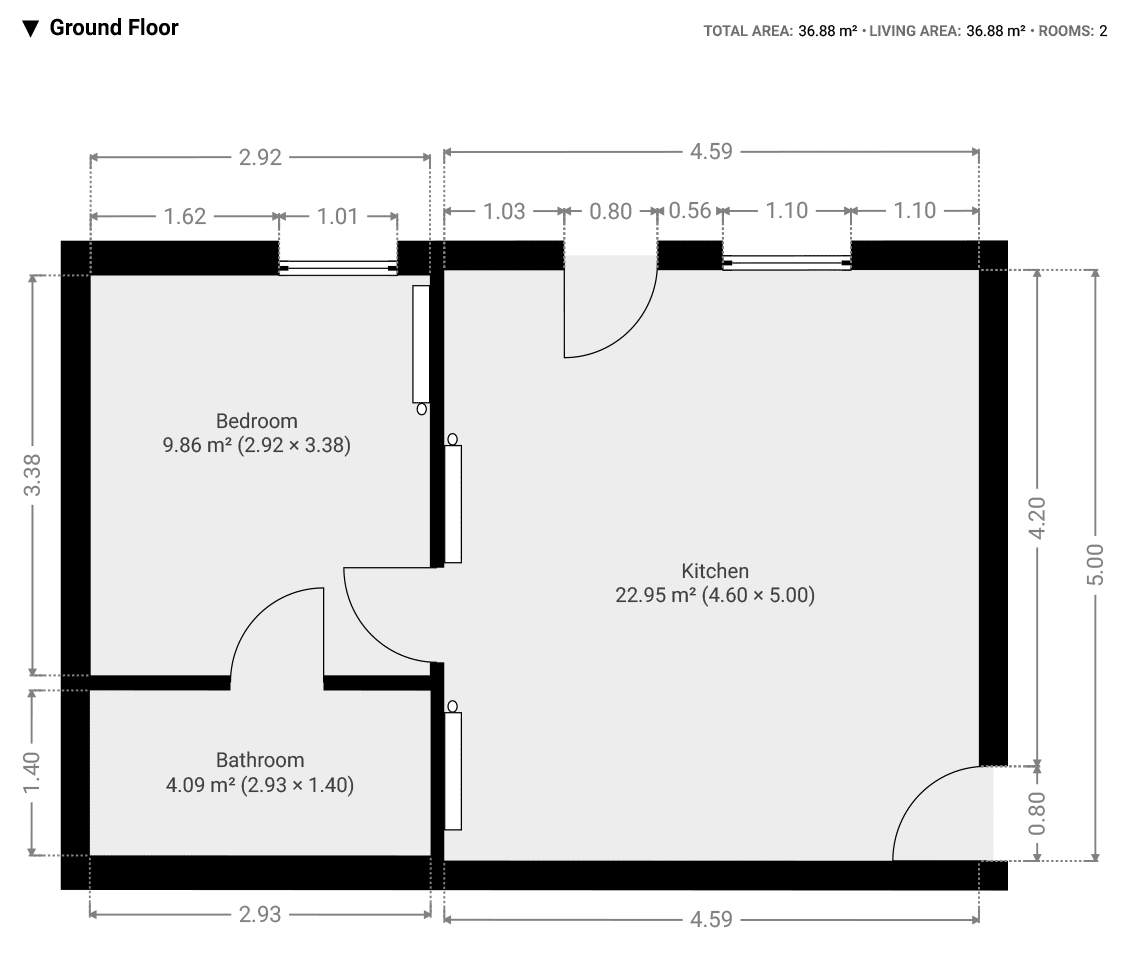
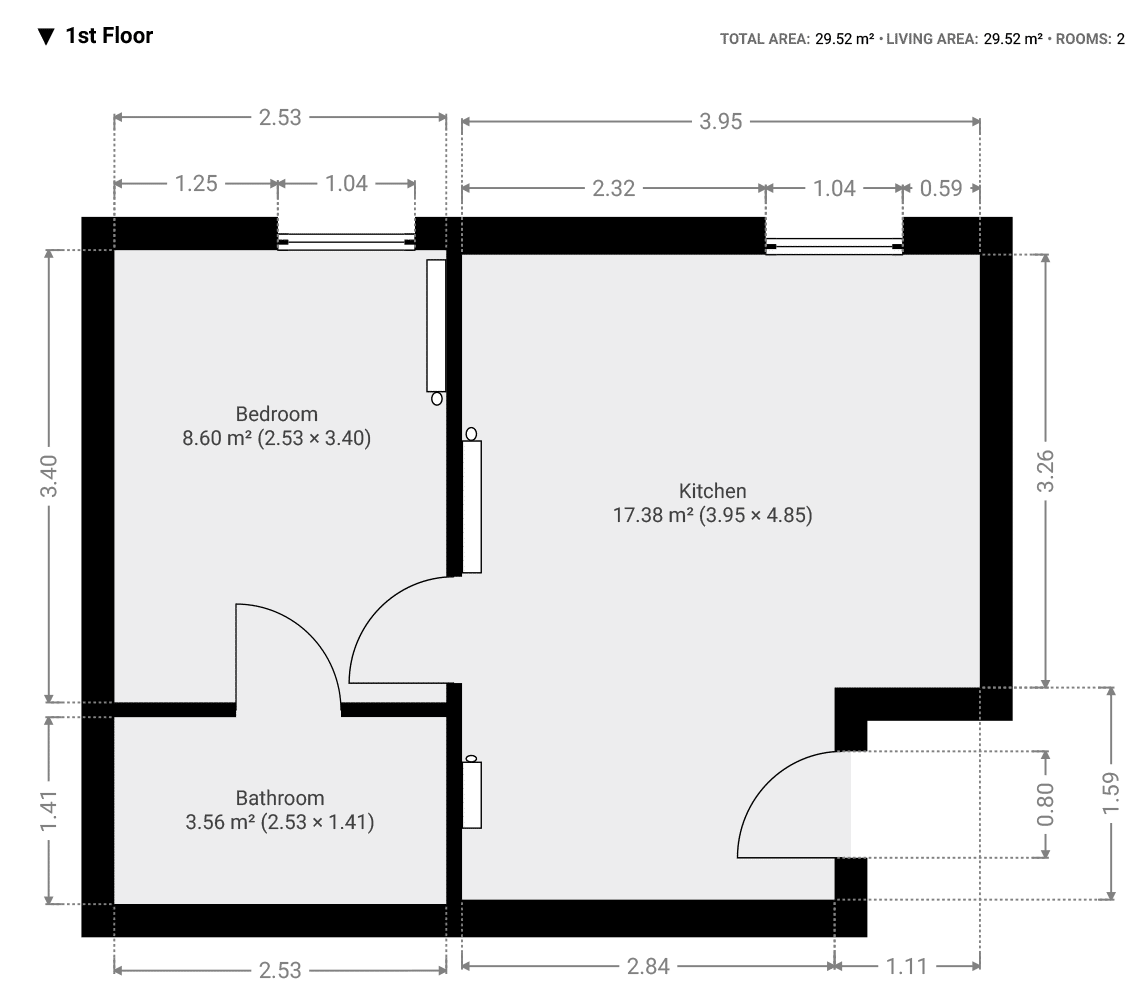
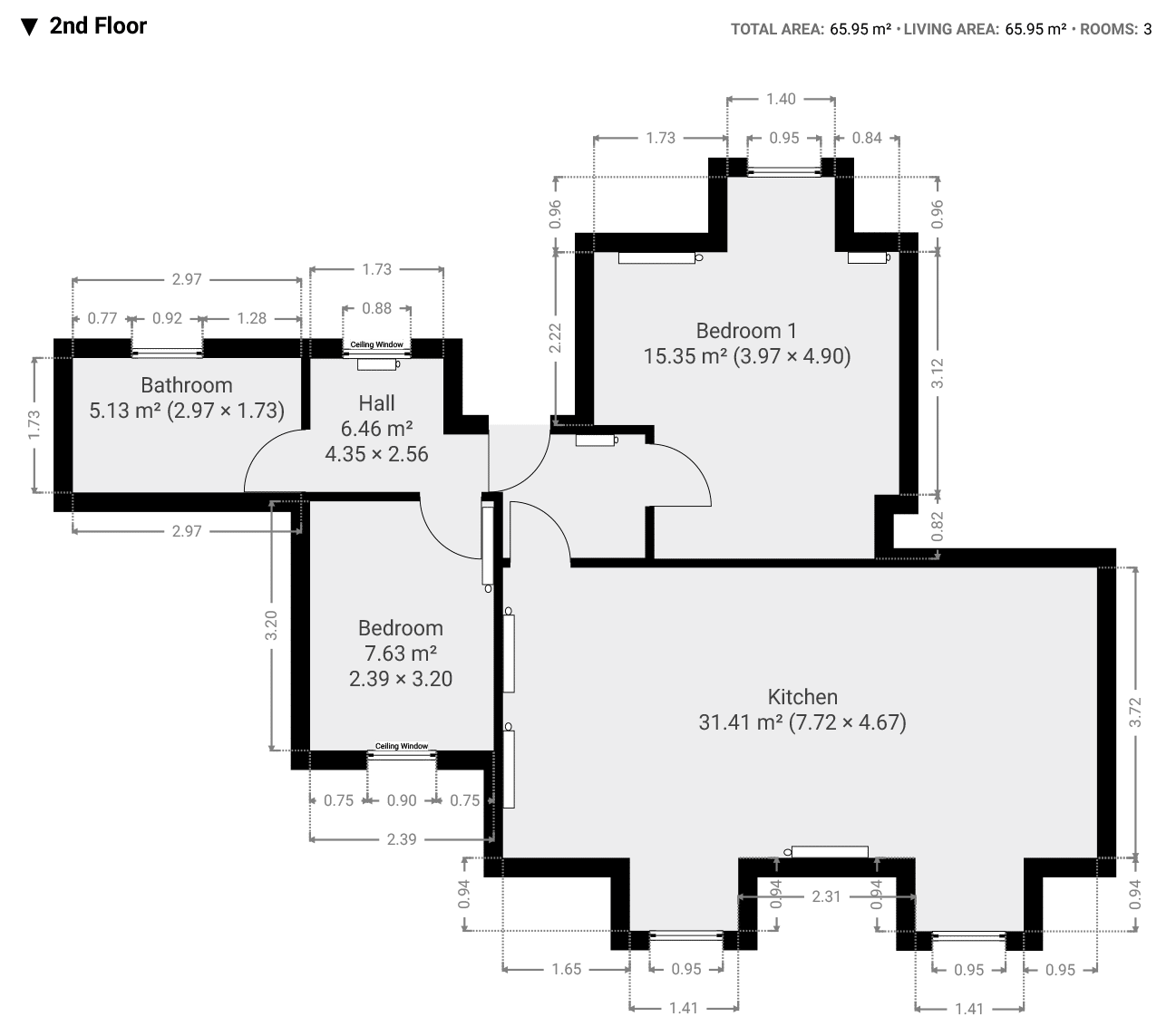
The Background
The Landlord National Purchasing Group (LNPG) is the largest buying group for private landlords in the UK. Its goal is to bring private landlords together and get competitive contract rates for everything needed for properties’ construction, refurbishment and maintenance. The group also offers financial and legal information to its members.

With the UK Government keen to upgrade the energy efficiency of rental properties, LNPG was looking for ways to support its members in upgrading their properties.
At the moment, the minimum EPC rating for rental properties is E, but this is set to increase to C for tenancies beginning in 2025. By 2028, the same standard will be applied to long-standing tenancies.
This means that if landlords don’t upgrade their properties on time, they will no longer be able to rent them. The changes interest a large number of landlords, since 36% of landlords surveyed by LNPG said their properties were built before 1940, and therefore don’t comply with new efficiency standards.
In this content, LNPG was looking to introduce its members to cutting-edge decarbonisation technologies that could ease the transition.

The challenge
To raise awareness of the proposed changes and help its members comply, in November 2022 the LNPG organised a seminar on Ambion low-carbon heat panels. The seminar provided concrete examples of cost savings and carbon emission reduction in new installations, and caught the interest of several LNPG members. Among them was Mohammed Tariq, Director of Newcastle-based Fenham Properties Ltd.
Fenham Properties was in the process of converting a Victorian terrace property of two maisonettes, turning the latter into five flats and studio apartments. The company wanted to use this opportunity to upgrade the EPC rating of the property. To do so, it planned to upgrade the fabric of the building, improve the insulation of its roof, door and windows, and replace bulky storage heaters with a more efficient and sustainable heating system.
Crucially, the apartments were intended for Medical Professional’s, so Fenham Properties was looking for a cost-effective solution that would reduce running costs. Another important requirement was that the heating system would have to match the contemporary decor of the renovated property.
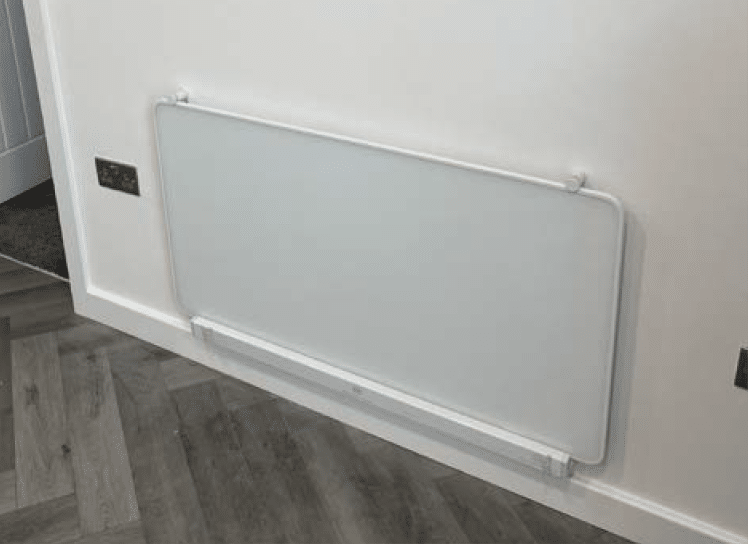
The project
A site survey established that three of the five refurbished apartments would benefit from having Ambion low-carbon heat panels installed.
Installation was quick and simple, and with guidance from our team, Fenham Properties installed the low-carbon heat panels in just one day, with minimal disruption.
The process from initial enquiry to installation took less than two months, and Ambion provided support at all stages – from answering installation queries to providing user instructions.
About Ambion low-carbon heat panels
Ambion Low Carbon Heat Panels have a unique control system that uses constant dynamic pulsing, rather than the traditional on/off approach used byother heating systems.
The system uses infrared heat, which is absorbed and released by the fabric and furniture within a room, rather than heating the air. This generates a naturally warm, radiant heat that feels like standing in direct sunlight, but without the harmful radiation.
The combination of dynamic computer controlled pulsing and infrared dramatically reduces energy usage, ensuring an average Performance Ratio of 2.69, and energy savings of up to 63% compared to traditional convection systems.
The householder can easily control the system using the Ambion Control Panel, which provides timer settings, room temperature control and surface temperature control. The Control Panel also provides a host of data, including actual temperature, energy usage and cost.
The results
Combined with upgraded triple-glazed windows, and new wall, doors and roof insulation, the heat panels contributed to boosting the property’s EPC rating from E to B.
Fenham Properties has monitored the effectiveness and energy performance of the heat panels, reporting a 35% reduction of running costs compared to storage heaters. This will drastically reduce running costs for medical professionals,, preventing fuel poverty while ensuring their homes stay warm and comfortable.
With a stylish, contemporary design and fast and easy installation, Ambion heat panels were considered an ideal choice for the renovated apartments, and Fenham Properties confirmed that low-carbon heat panels will remain their preferred heating solution for similar renovations in the future.
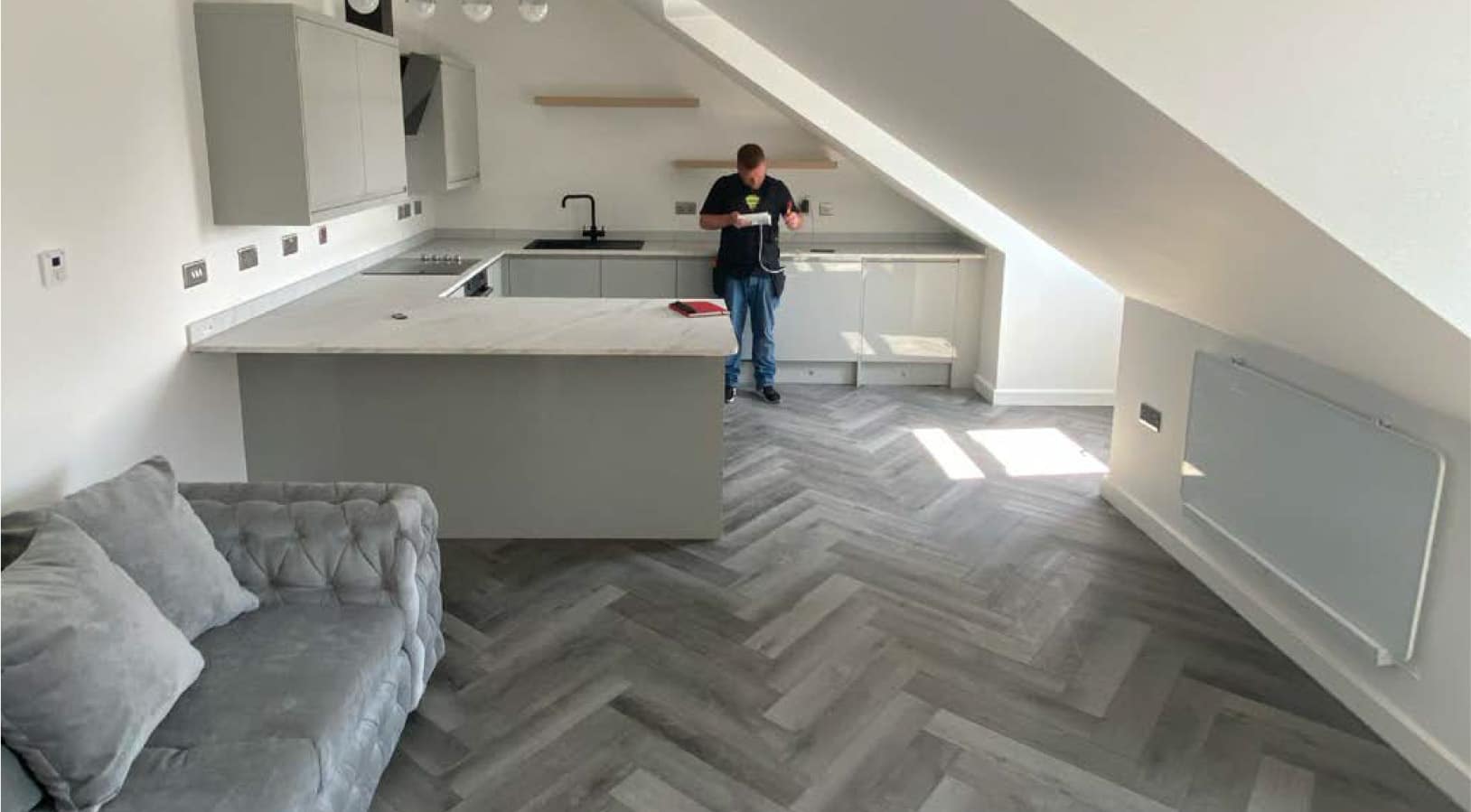
“My experience working with Ambion Heating has been excellent, and the team at Ambion has been both professional and responsive,” commented Mr Tariq. “Ambion low-carbon heat panels are easy to install, and look sleek and stylish compared to bulky storage and electric heaters.”
“It’s great to be able to support private landlords in their efforts to decarbonise the UK housing stock,” added Oliver Baker, CEO of Ambion Heating. “Complying with the Government’s new regulatory framework for rental properties can be a challenge for landlords, but it is also an opportunity.
“With innovative heating solutions like our low-carbon heat panels, landlords can quickly increase the value of their properties, while contributing to our national sustainability efforts and ensuring improved living conditions for their tenants”
To learn more about Ambion low-carbon heat panels and whether they would be a good choice for your property, get in touch with our team.
